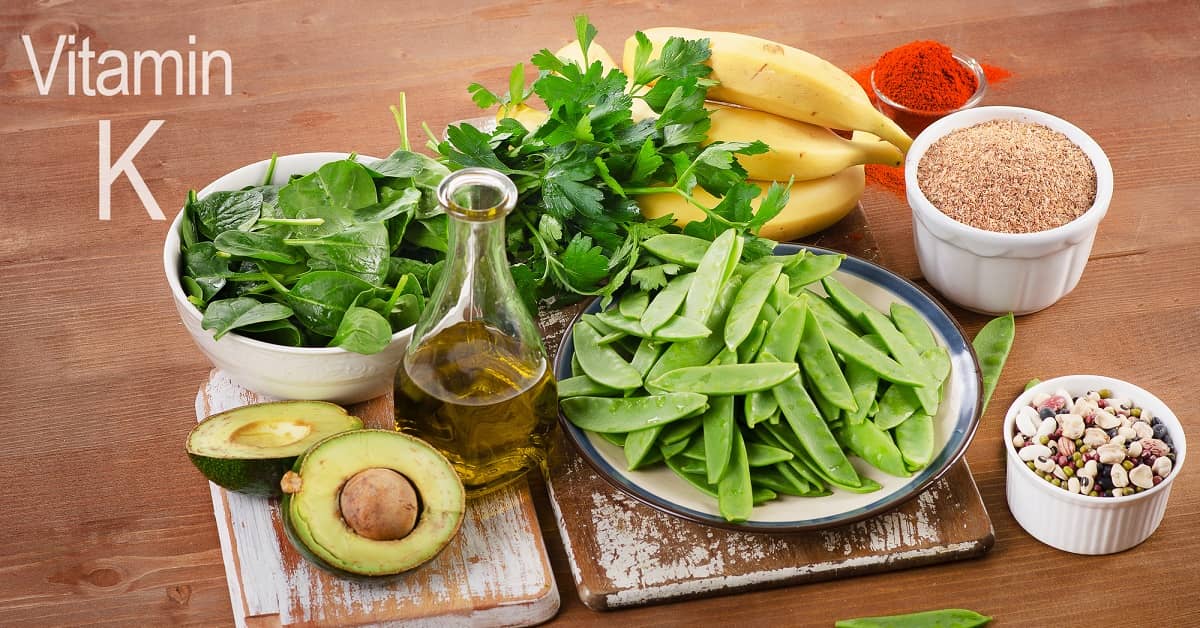
They found one little-known vitamin was linked to a lower risk of death from all causes.
This vitamin, vitamin K, doesn’t get much attention in the health world, but the research is clear: if you run short of it, your life may be a few years shorter than it could be.
Vitamin K is a fat-soluble vitamin found in certain vegetables, legumes and meat.
It’s critical to a healthy cardiovascular system because it helps your blood clot and helps blood vessels and arteries expand and contract to support blood flow. Vitamin K also plays the important role of regulating calcium in bones and blood vessels. Plus, it supports health at the cellular level by supporting the cells’ mitochondria — the “batteries” that provide energy.
While vitamin K deficiency is common in newborns and usually prevented with a routine vitamin K injection, mainstream medicine takes the position that most adults aren’t “deficient” in vitamin K. However, the new research out of Tufts should have us all questioning this wisdom.
Vitamin K Lowers Risk of Dying by 19 Percent
The Tufts researchers analyzed 13 years of health data from people taking part in three major medical studies including the Aging and Body Composition Study, the Multi-Ethnic Study of Atherosclerosis, and the well-known Framingham Heart Study.Their analysis showed that the people with the lowest blood levels of vitamin K had a 19 percent higher risk of dying during the 13 years covered by the research than those who had what is considered an adequate vitamin K level.1 Why? The researchers believe that vitamin K’s role in keeping the blood vessels and arteries open and flexible is probably linked to its role in helping people live longer.
“The possibility that vitamin K is linked to heart disease and mortality is based on our knowledge about proteins in vascular tissue that require vitamin K to function,” says Tufts researcher Kyla Shea. “These proteins help prevent calcium from building up in artery walls, and without enough vitamin K, they are less functional.”
Helps You Stay Active as You Age
A second study at Tufts shows that vitamin K is also important for helping you maintain an active and independent lifestyle as you get older.In this research, the Tufts scientists looked at health data from people in their 70s over a ten-year period. In addition to calculating the vitamin K levels in their blood, the researchers measured people’s ability to walk a quarter mile or climb stairs in order to gauge how their mobility was changing with the passing years.
They found that older people who had lower amounts of vitamin K circulating in their bloodstream were 1.5 times more likely to become disabled – ending up in a wheelchair, for instance. And this was true for both men and women.
Keep Those Vegetables Coming
According to researchers in Australia, one way to get more vitamin K in your diet and protect your cardiovascular system is to eat more broccoli, brussels sprouts and cabbage – the cruciferous vegetables we often talk about in these pages.This study of about 700 senior Australian women found that those who ate the most cruciferous vegetables reduced their risk of having calcium accumulate in their hearts-- the aorta specifically-- which is a key indicator of heart issues.2 "In our previous studies, we identified those with a higher intake of these vegetables as having a reduced risk of having a clinical cardiovascular disease event, such as a heart attack or stroke, but we weren't sure why," says researcher Lauren Blekkenhorst. “But one particular constituent found abundantly in cruciferous vegetables is vitamin K which may be involved in inhibiting the calcification process that occurs in our blood vessels."
Supplementing with Vitamin K
When it comes to vitamin K, keep in mind that there are various forms available in nature. The type found in those cruciferous vegetables is K1. The type found in animal foods like cheese, egg yolks, butter and dark chicken meat is K2.There’s strong evidence that K2 is more helpful for your heart health, which is why natural health doctors frequently recommend it as a supplement. Our company, Green Valley Natural Solutions, provides you with a minimum dose of a highly absorbable form of K2, called menaquinone-7 or MK-7, in our leading anti-aging formula, Genesis. It’s mainly there to enhance the other elements in the formula.
I’ve been taking an even larger dose for years (46 times as much!) in a product from Life Extension called Super K Elite. That may be going overboard, but I have a great deal of confidence in their products and research. The government, meanwhile, has not acknowledged a minimum daily requirement of K, and you’ll probably be dead before they do.
But whether you supplement with vitamin K or consume it in food, it’s a good idea to consume some kind of healthy fat with it such as olive oil or fish oil, which helps you absorb more vitamin K from your digestive tract.
